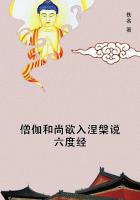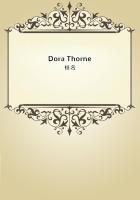Left with her husband Maggie however for the time said nothing; she only felt on the spot a strong, sharp wish not to see his face again till he should have had a minute to arrange it. She had seen it enough for her temporary clearness and her next movement--seen as it showed during the stare of surprise that followed his entrance. Then it was that she knew how hugely expert she had been made--made for judging it quickly--by the vision of it, indelibly registered for reference, that had flashed a light into her troubled soul the night of his late return from Matcham. The expression worn by it at that juncture for however few instants had given her a sense of its possibilities, one of the most relevant of which might have been playing up for her, before the consummation of Fanny Assingham's retreat, just long enough to be recognised. What she had recognised in it was HIS recognition, the result of his having been forced, by the flush of their visitor's attitude and the unextinguished report of her words, to take account of the flagrant signs of the accident, of the incident, on which he had unexpectedly dropped. He had not unnaturally failed to see this occurrence represented by the three fragments of an object apparently valuable which lay there on the floor and which even across the width of the room, his kept interval, reminded him, unmistakeably though confusedly, of something known, some other unforgotten (182) image. That was a mere shock, that was a pain--as if Fanny's violence had been a violence redoubled and acting beyond its intention, a violence calling up the hot blood as a blow across the mouth might have called it. Maggie knew as she turned away from him that she did n't want his pain; what she wanted was her own ****** certainty--not the red mark of conviction flaming there in his beauty. If she could have gone on with bandaged eyes she would have liked that best; if it were a question of saying what she now apparently should have to, and of taking from him what he would say, any blindness that might wrap it would be the nearest approach to a boon.
She went in silence to where her friend--never in intention visibly so much her friend as at that moment--had braced herself to so amazing an energy, and there under Amerigo's eyes she picked up the shining pieces.
Bedizened and jewelled, in her rustling finery, she paid, with humility of attitude, this prompt tribute to order--only to find however that she could carry but two of the fragments at once. She brought them over to the chimney-piece, to the conspicuous place occupied by the cup before Fanny's appropriation of it, and after laying them carefully down went back for what remained, the solid detached foot. With this she returned to the mantel-shelf, placing it with deliberation in the centre and then for a minute occupying herself as with the attempt to fit the other morsels together. The split determined by the latent crack was so sharp and so neat that if there had been anything to hold them the bowl might still quite beautifully a few steps away have passed for uninjured. (183) As there was however nothing to hold them but Maggie's hands during the few moments the latter were so employed, she could only lay the almost equal parts of the vessel carefully beside their pedestal and leave them thus before her husband's eyes. She had proceeded without words, but quite as if with a sought effect--in spite of which it had all seemed to her to take a far longer time than anything she had ever so quickly accomplished.
Amerigo said nothing either--though it was true his silence had the gloss of the warning she doubtless appeared to admonish him to take: it was as if her manner hushed him to the proper observation of what she was doing.
He should have no doubt of it whatever: she KNEW and her broken bowl was proof that she knew--yet the least part of her desire was to make him waste words. He would have to think--this she knew even better still; and all she was for the present concerned with was that he should be aware. She had taken him for aware all day, or at least for obscurely and instinctively anxious--as to that she had just committed herself to Fanny Assingham; but what she had been wrong about was the effect of his anxiety. His fear of staying away, as a marked symptom, had at least proved greater than his fear of coming in; he had come in even at the risk of bringing it with him--and ah what more did she require now than her sense, established within the first minute or two, that he HAD brought it, however he might be steadying himself against dangers of betrayal by some wrong word, and that it was shut in there between them, the successive moments throbbing (184) under it the while as the pulse of fever throbs under the doctor's thumb?















